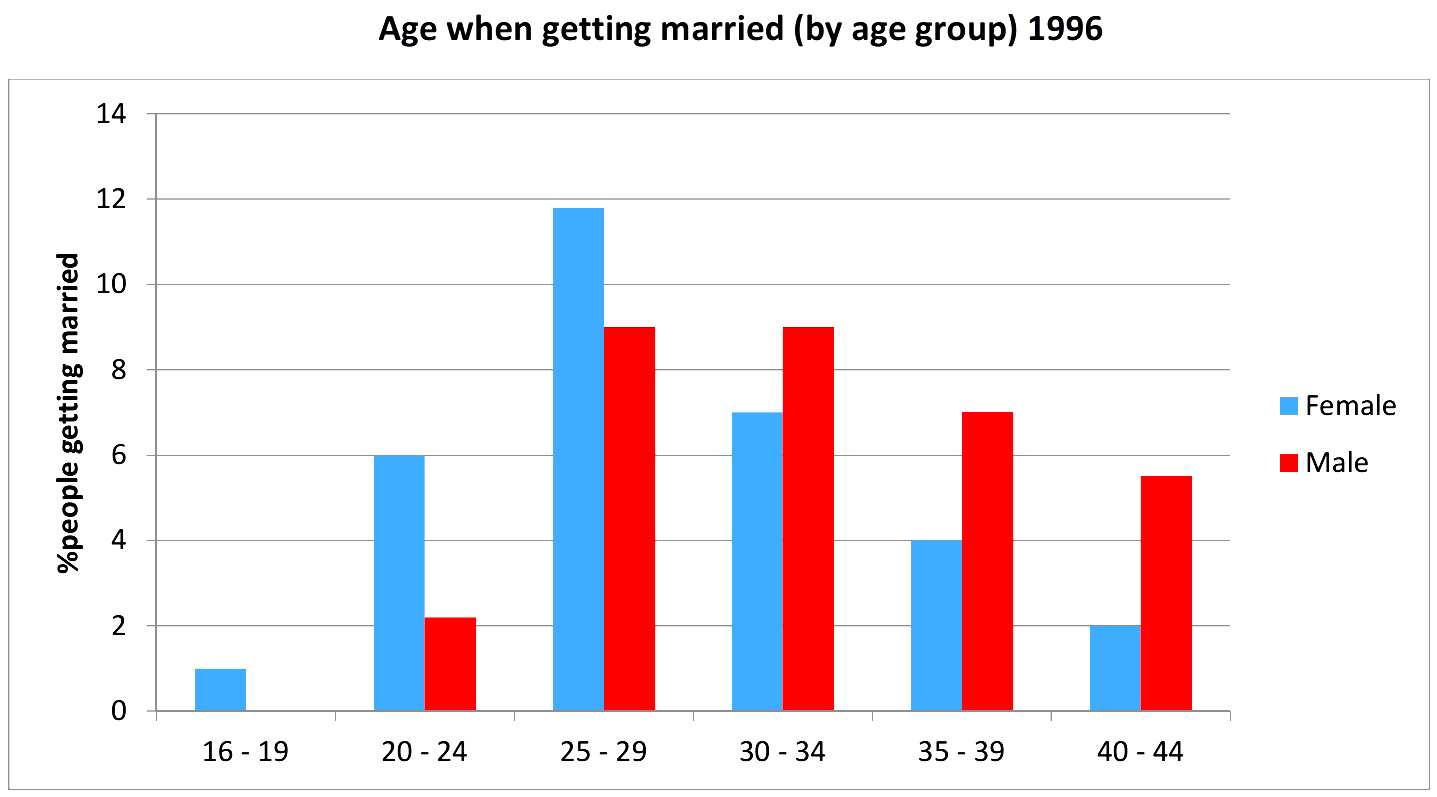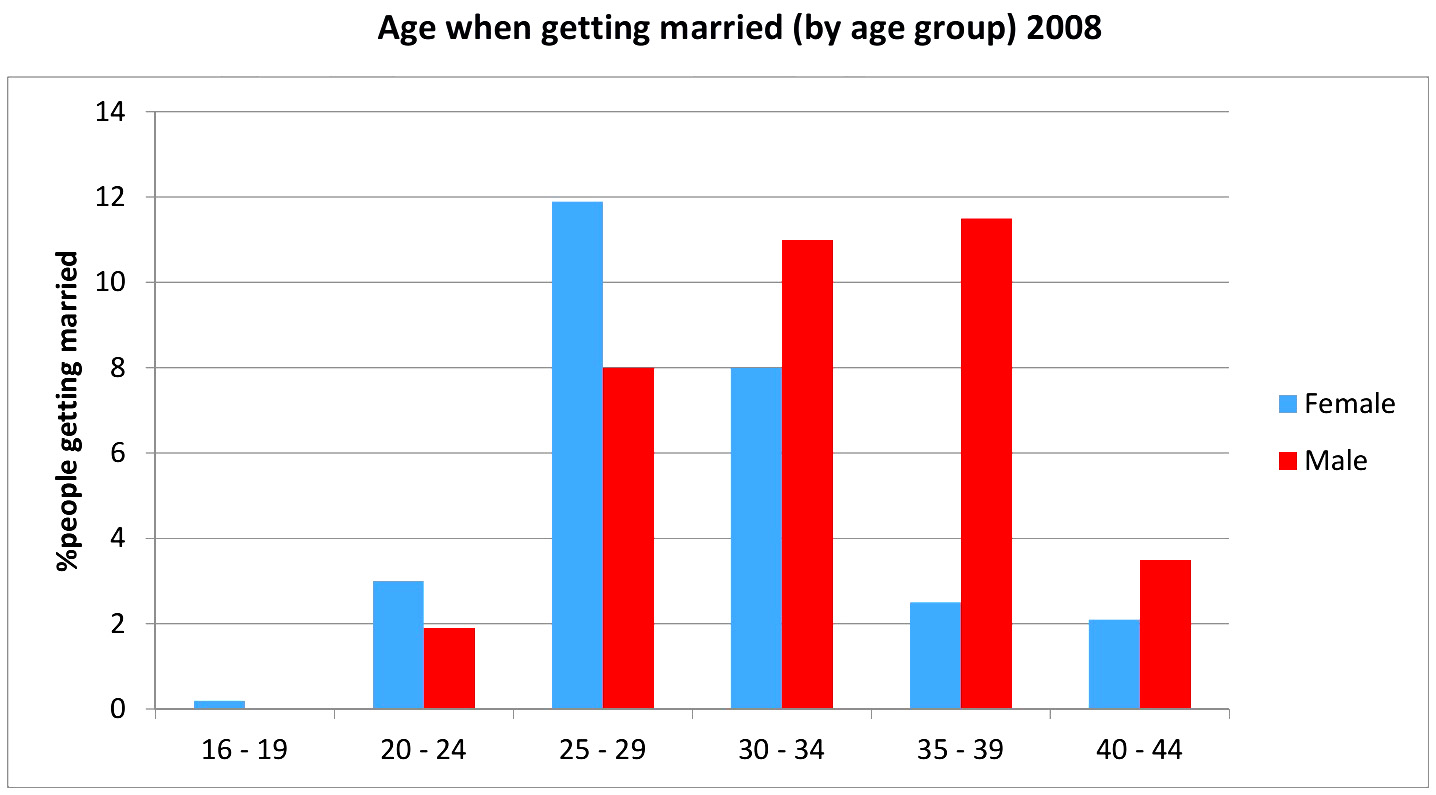The charts below give information on the ages of people when they got married in one particular country in 1996 and 2008.
Write at least 150 words.


The society would benefit from a ban on all forms of advertising because it serves no useful purpose, and can even be damaging. Do you agree or disagree?
Give reasons for your answer and include any relevant examples from your own knowledge or experience.
Write at least 250 words.
WRITING TASK 1
The bar charts compare the percentages of males and females, in a particular country, getting married according to six different age groups (16-19, 20-24, 25-29, 30-34, 35-39, 40-44), in 1996 and 2008.
It is clear that the proportion of both men and women getting married under the age of 30 decreased slightly, while the opposite was true for those aged 30 and older. In addition, 25-29 was the most popular age range for women to get married, while for men it was 30-34 and 35-39.
In both years, 16-19 year old were the lowest percentage of people getting married, with women at less than 0.5% in 1996 and about 1% in 2008. Noticeably, no men in this age group got married. The figures for those aged 20-24 also reduced over the years from approximately 6% to 3% for women and just over 2% to just under 2% for men. Meanwhile, the figure for 25-29 year old women remained unchanged at about 12%, as opposed to a slight drop to 8% in the figure for men.
Regarding older age groups, a considerable rise to 8% and 11% respectively could be seen in the proportion of 30-34 year old females and males getting married. However, while the number of men who got married aged 35-39 increased by 4%, to 11% in 2008, only 3% of women in that age group married in 2008. Finally, the figures for both genders in the 40-45 age group remained relatively unchanged over the examined period.
(249 words)
WRITING TASK 2
It has been argued that a complete restriction on all forms of advertising would be of great value for society as a whole, due to its apparent lack of usefulness and sometimes harmfulness. In my opinion, this assumption is highly subjective, and therefore I completely disagree with it.
To begin with, to claim that commercials have no use and are detrimental to consumers is completely ill-founded. We are living in a world where new products with distinct and revolutionary features to better our lives and solve everyday problems are being released almost every day. We cannot deny the fact that such products would remain relatively unknown unless advertising was used to reach customers on a large scale. As a result of advertising, many businesses will thrive, and in turn, pay taxes to the government which will help contribute towards a variety of governmental systems, such as education, healthcare and social security. Such systems help to ensure the well-being of all citizens.
From another perspective, dependency on the advertising industry is inevitable for any nation to prosper. Once commercials, by law, undergo a prohibitive order, unemployment rates would increase and the burden would fall on the state. For example, Coca Cola dispenses thousands of employment opportunities in advertising throughout its branches across different regions around the world. If adverts are forbidden, an unthinkable number of workers, such as marketers, would either be driven to other jobs or become unemployed. The government, as a result, have to provide temporary financial support for those people. In other words, banning all forms of advertising would have many undesirable implications on society.
In conclusion, it is unreasonable to presume that advertisements are irrelevant and need to be prohibited for the sake of societies best interests.
(290 words)
